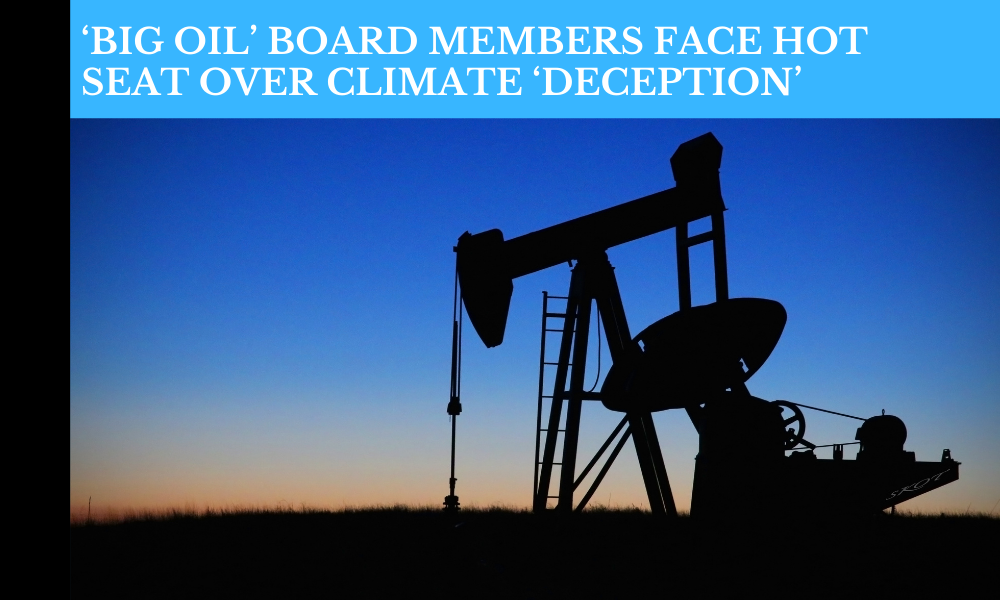
In 1977, an internal memo at Exxon, the United States oil giant, made clear that carbon emissions from its product were causing climate change. But not only that – time was running out to act.
“CO2 release most likely source of inadvertent climate modification,” said the shorthand document. “5-10 yr time window to get the necessary information.”
But over the coming years, rather than dropping fossil fuels to avert the dangers outlined in its own research, Exxon and other oil corporations chose a different path.
The industry orchestrated a systematic campaign of disinformation to dupe the public, impede political action, and protect profits.
“Emphasize the uncertainty in scientific conclusions regarding the potential enhanced Greenhouse effect,” said an Exxon paper in 1988, one of many published in the America Misled report on the fossil fuel industry.
“Stress environmentally sound adaptive efforts,” said another internal memo the following year. “Victory will be achieved when average citizens ‘understand’ (recognize) uncertainties in climate science,” added one more in 1998.
Two years later, Exxon – styled by then as ExxonMobil after a multibillion-dollar merger – secured an advertorial in The New York Times as part of a media blitz to bolster climate denial.
Under the headline “Unsettled Science”, it argued that scientists faced “fundamental gaps in knowledge”, despite the overwhelming and ever-increasing consensus that fossil fuels were causing the planet to heat.
Against this decades-long backdrop of deception and denial, oil industry insiders will appear before the US Congress as some of the most powerful energy companies in the world face a reckoning for their role in creating – and attempting to cover up – the climate crisis.
Board members at BP, Chevron, ExxonMobil, and Shell will be questioned under oath by a House panel on Tuesday.
The aim is to illuminate the industry’s contribution to humanity’s worst existential threat – and how, at the same time, it spread disinformation to cast doubt over the catastrophic impact of burning its products.
Although the hearings cannot bring criminal prosecutions, experts see them as a crucial means of shifting public opinion.
And that could spur consumers to shun carbon-based fuels and encourage investors to strip big polluters of capital while empowering environmental activists and lawyers to take on powerful industrial interests.
“This could be a watershed moment,” said Richard J Rogers, executive director of Climate Counsel, a non-profit law firm specializing in environmental destruction and crimes against humanity.
“This whole story is about the greed of a tiny number of men who were prepared to threaten the stability of their own, and our own, civilization in order to get very rich.”
The stakes could not be higher. In the wake of the disappointing United Nations Climate Change Conference (COP26), where crucial new targets were stymied by oil and coal-producing countries, current commitments to cut emissions put the world on track for a disastrous 2.4C increase in global temperatures by the end of this century.
That ruinous rise will cause major sea-level rise from melting ice sheets, devastating coastal cities and island nations.
Ecosystems will collapse while storms, droughts, floods, and wildfires increase in number and intensity, fuelling famine, fighting, and the displacement of millions as equatorial regions become unliveable and unprecedented heatwaves lacerate northern latitudes. Source: Aljazeera...